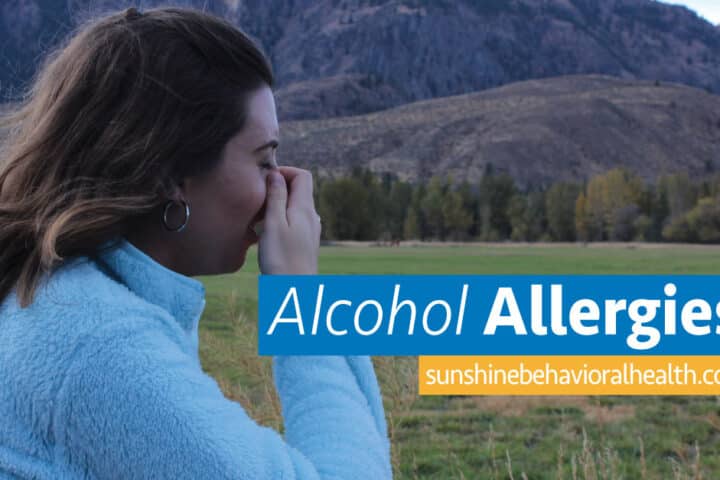
Alcohol Allergy or Alcohol Intolerance: What’s the Difference?
More than one person who’s awakened with a pounding hangover has probably wondered or joked that they had an allergy to alcohol.
Joking aside, there are real allergies to alcohol, and they tend to be a bit more complicated and uncomfortable than a headache and a tortured gut.
A better (and more accurate way) to describe what many believe to be an alcohol allergy is alcohol intolerance.
Alcohol intolerance is far more common than alcohol allergies.
A person with an alcohol allergy may experience a severe reaction — usually the immune system overreacts to the allergen — to the point where it’s best advised they avoid the stuff entirely.
In a worst-case scenario, a person can go into anaphylactic shock — a life-threatening allergic reaction where the body releases histamine. That can cause a person to stop breathing, pass out, or go into cardiac arrest.
Other signs of alcohol allergy can include:
- Hives or itchy skin
- Itchy eyes, nose, or mouth
- Runny or stuffy nose, or trouble breathing
- Swelling of the face, eyes, nose, or tongue
- Vomiting, nausea, diarrhea
- Feeling dizzy or light-headed
In some cases, people can be allergic to what the libation is made from — wheat, barley, or yeast, for example.
Alcohol intolerance is when the body doesn’t digest alcohol properly.
For most people who drink, an enzyme, alcohol dehydrogenase (ADH), converts the ethanol from one’s beer or bourbon into toxic acetaldehyde. A liver enzyme, aldehyde dehydrogenase (ALDH) then converts the acetaldehyde into harmless acetic acid.
Depending on how much a person drinks, these conversion processes can take some time, and the result can be a raging hangover.
Others can’t break down the alcohol-related enzymes and as a result they experience a number of unpleasant side effects. The most telltale one is a hot, red face, but other symptoms include headaches, stomach upset, vomiting, and a rapid heartbeat.
In the case of alcohol allergies, it’s best to avoid the stuff altogether, but it’s not such bad advice for those with alcohol intolerance either.
If the drinking has gotten out of control, to the point where you’re experiencing alcohol withdrawal symptoms, then it’s best to seek medical help to ensure you quit or cut back safely.
Sources
medlineplus.gov – Anaphylaxis
healthline.com – Alcohol Allergies
scientificamerican.com – In Search of a Cure for the Dreaded Hangover
sunshinebehavioralhealth.com – Dangers Associated with Quitting Alcohol Cold Turkey
A Message From Our CEO
Medical disclaimer:
Sunshine Behavioral Health strives to help people who are facing substance abuse, addiction, mental health disorders, or a combination of these conditions. It does this by providing compassionate care and evidence-based content that addresses health, treatment, and recovery.
Licensed medical professionals review material we publish on our site. The material is not a substitute for qualified medical diagnoses, treatment, or advice. It should not be used to replace the suggestions of your personal physician or other health care professionals.





